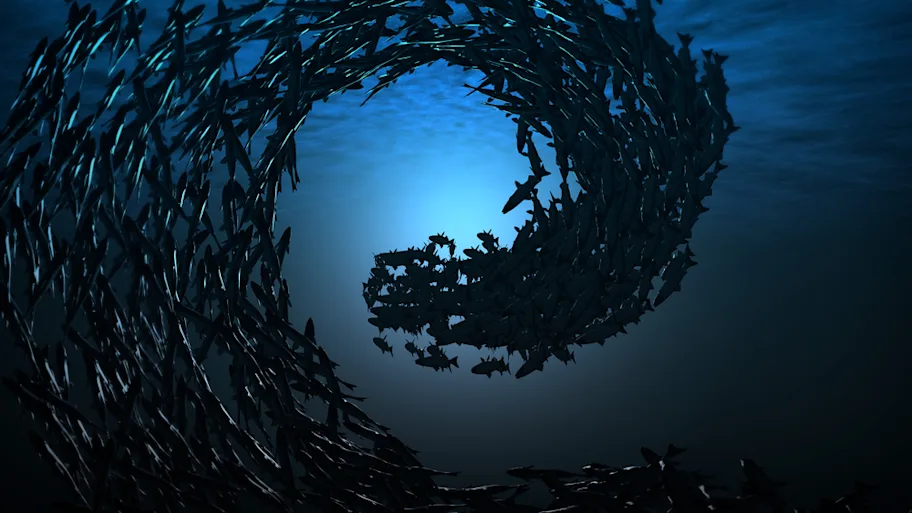
- Science news
- Life sciences
- Conquering the great divide between physics complexity and real-world complexity
Conquering the great divide between physics complexity and real-world complexity
By Michelle Ponto, science writer

Professor Zbigniew R. Struzik from the University of Tokyo
Professor Zbigniew R. Struzik from the University of Tokyo
The divide between “physics complexity” and real-world complexity is wide, but understanding characterization of real-world complexity is growing in importance. While phase transitions and associated phenomena in physical systems has been one defining subject in the field, how they connect and create parallels within real-life systems is still underexplored. This is one of the reasons Professor Zbigniew R. Struzik from the University of Tokyo launched a Frontiers Research Topic entitled “Critical Phenomena in Complex Systems.”
Struzik specializes in biophysics and medical physics as well as complex system’s physics and condensed matter physics. With the launch of the research topic he’s hoping physicists from around the world will submit their manuscripts dealing with criticality and phase transitions in real-world complex systems towards the topic to help advance it forward and focus the attention of the community around it. Struzik says this problem has been around for some time already, but only in recent years has the tool of ‘research topics’ become available to help him explore it. And the timing could not be more perfect.
“Modern physics is rapidly expanding from the domains which are traditionally considered to be the matter of physics. At the same time disciplines globally referred to as life sciences have made an overwhelming progress over the past decades,” he explained. “The boundaries between these disciplines were set a couple of hundred years ago, promoting specialization and isolation of physics, and to a large extent this is how they still remain. Yet an increasingly large part of the physics community is becoming aware that isolation from the science of life and complexity of living systems is not serving physics. To the contrary physics may, and will, in my opinion, benefit from tackling hard questions.”
Struzik admits that this cannot be achieved through one research topic, but he believes it can achieved through a systematic change extending and adapting physics education to the new challenges of broader view of what physics is. “Trends are set by small contributions in the desired direction and I hope that my effort will not remain singular,” he said.
He says his intention when launching the topic through Frontiers was to consolidate the view on the problem and shed light on the problem from multiple angles. This will help expose the structures and links within the problem which he says would otherwise “remain hidden in the often fragmented and sometimes contradictory results published previously on the subject.”
To-date, articles published within Frontiers Research Topics have received over 75,000,000 views and have been downloaded 21,000,000 times. Struzik already knows a Frontiers Research Topic can boost the awareness of an issue as over the years he’s launched three other topics on different subjects.
“In my previous topics my experience was overly positive. I enjoyed the interaction with a wide group of scientists who responded to my research topic call for papers,” said Struzik. “For me it is a way of doing research. It is not a standard way, where you restrict yourself to your own group, protect your results and compete with others, from time to time releasing new publications and sharing results at conference.”
Struzik says when doing a Frontiers Research Topic, you need to open up, propose a good question or a set of questions, and be ready to accept that contributors to the Research Topic will expand on your idea or line of thought.
“Frontiers Research Topics offer a way to do such ‘collaborative research’ at a pretty large scale,” Struzik explained. “Entirely free from the administrative burdens of industry or government sponsored projects, they bring science back to what science is about, in my opinion. In many ways Research Topics need to be formulated at the front line of research, proposing ambitious ideas which nevertheless are feasible and can already be approached by the scientists working.”
Launching a Research Topic with Frontiers provides academics with the opportunity to specify the theme of the research they want to publish to highlight advancements in the area and stimulate discussion and collaboration. It all begins by submitting a proposal through the Frontierin.org website.
“I do not center my topics on one question or problem. Rather I tend to make an appeal to a sufficiently large group of scientists, who could form a ‘critical mass’ sufficient to bring the subject of the topic in question to a state where novel insights could emerge. Or if you wish, in the language of this particular topic in Frontiers in Physics, self-organization would lead,” he said.
Submissions are open until the end of November. Struzik is welcoming all types of research, from purely theoretical contributions to experimental, simulations and data exploration based work, to help form a critical mass around the topic. Review papers, opinion pieces and hypothesis papers are equally welcome.
To submit an abstract for this topic, visit http://journal.frontiersin.org/researchtopic/4354/critical-phenomena-in-complex-systems for details.






